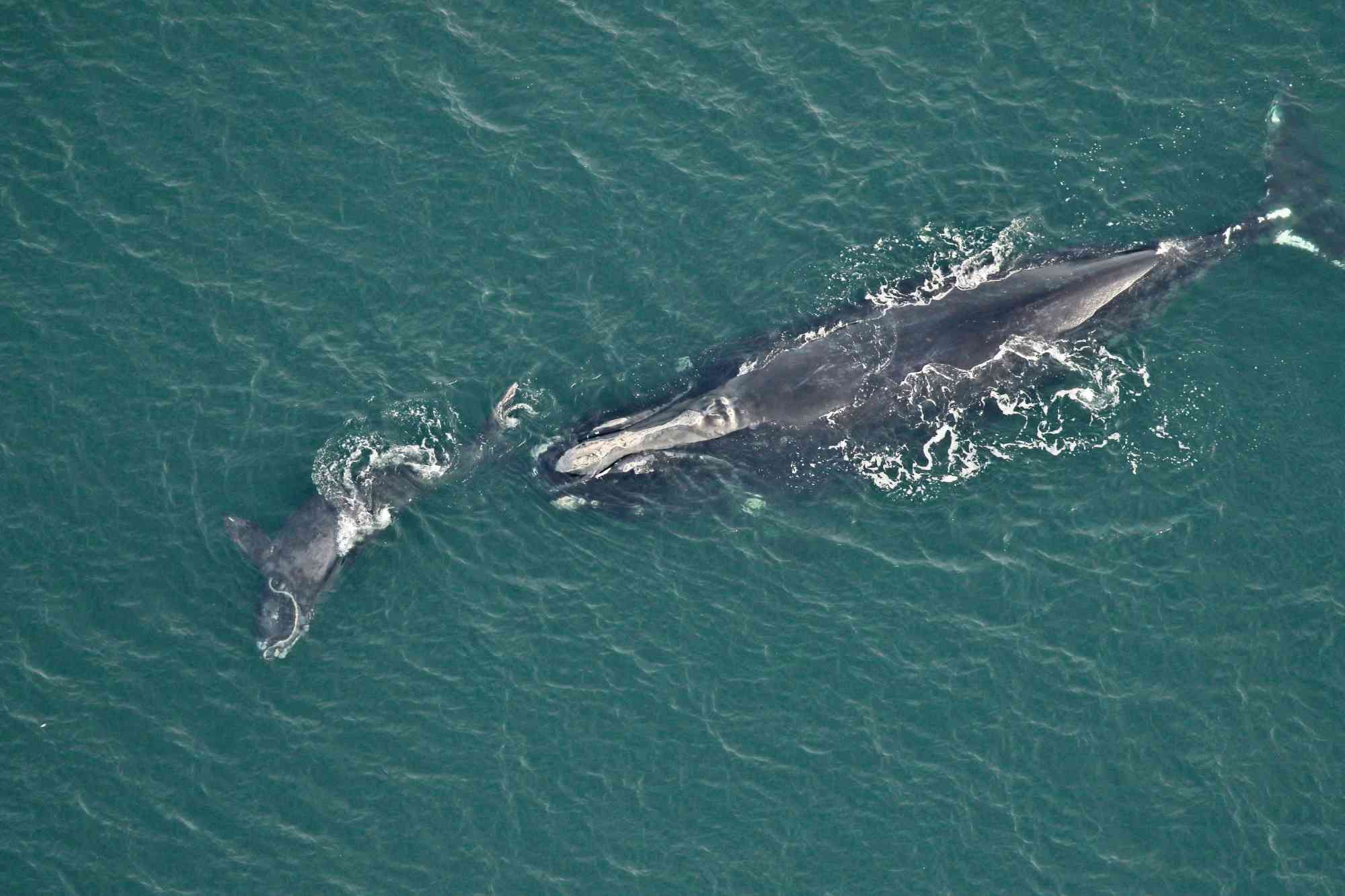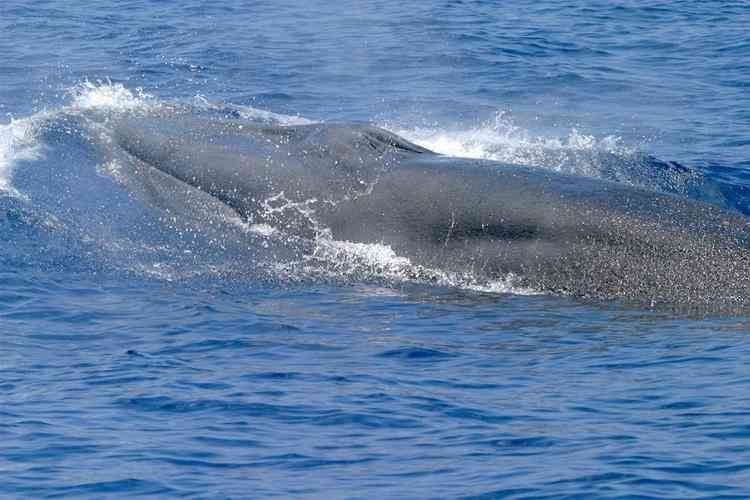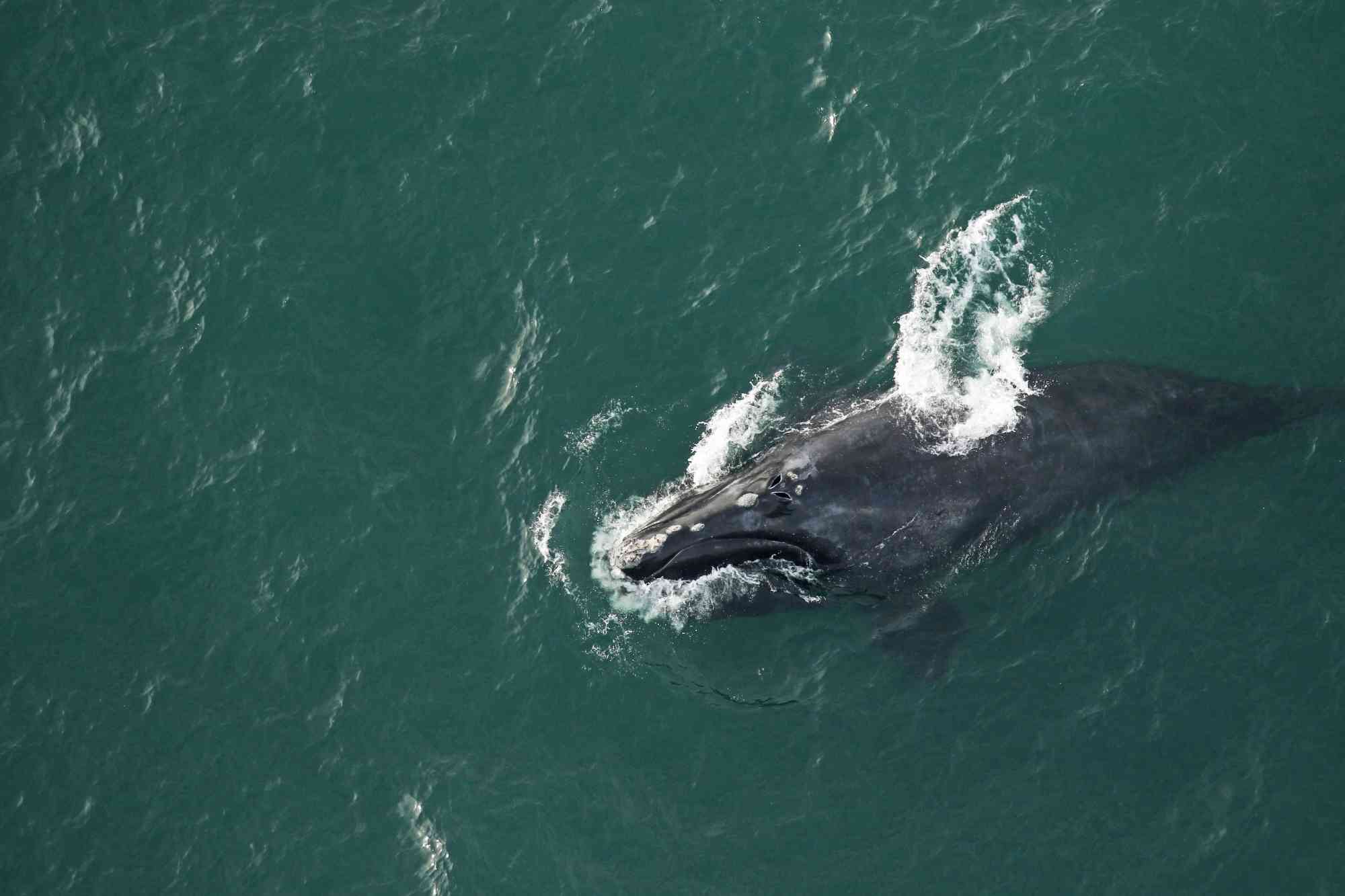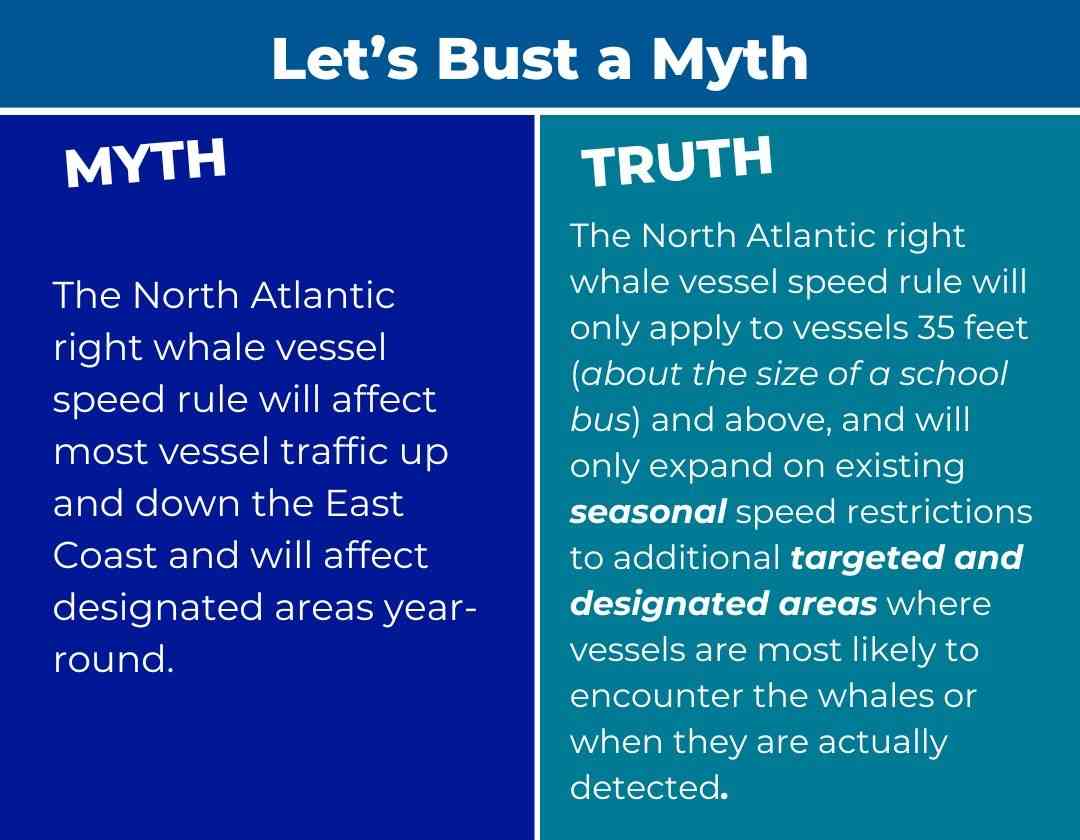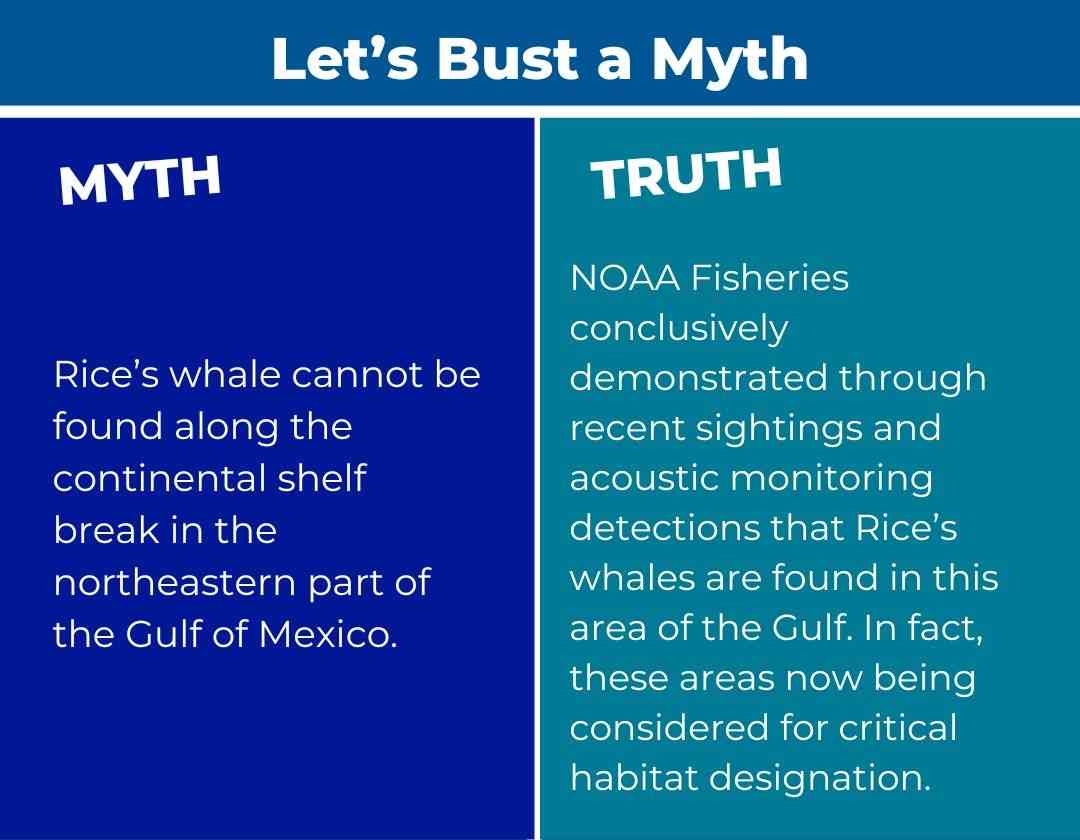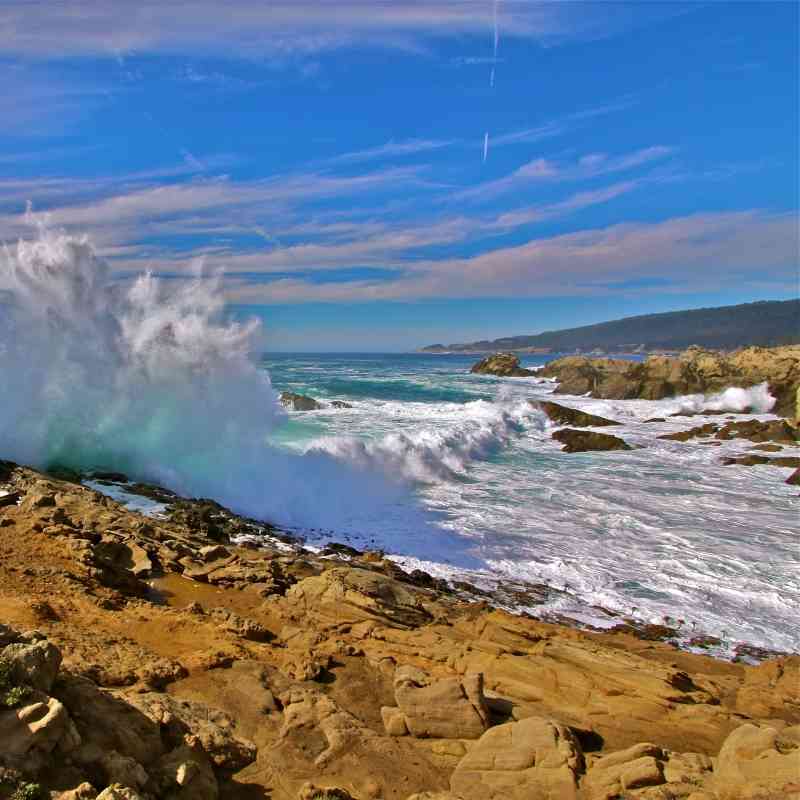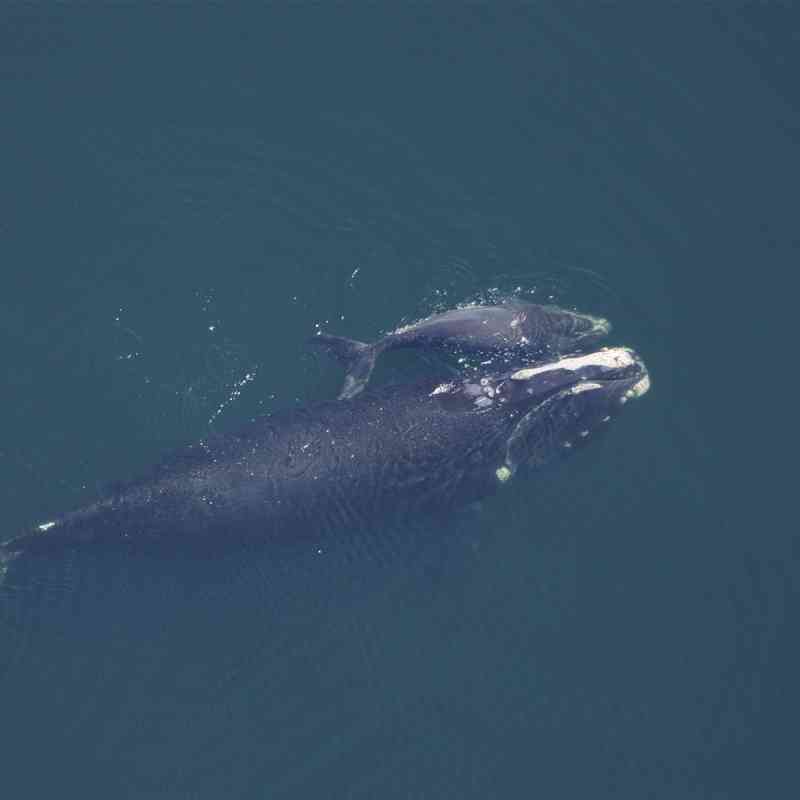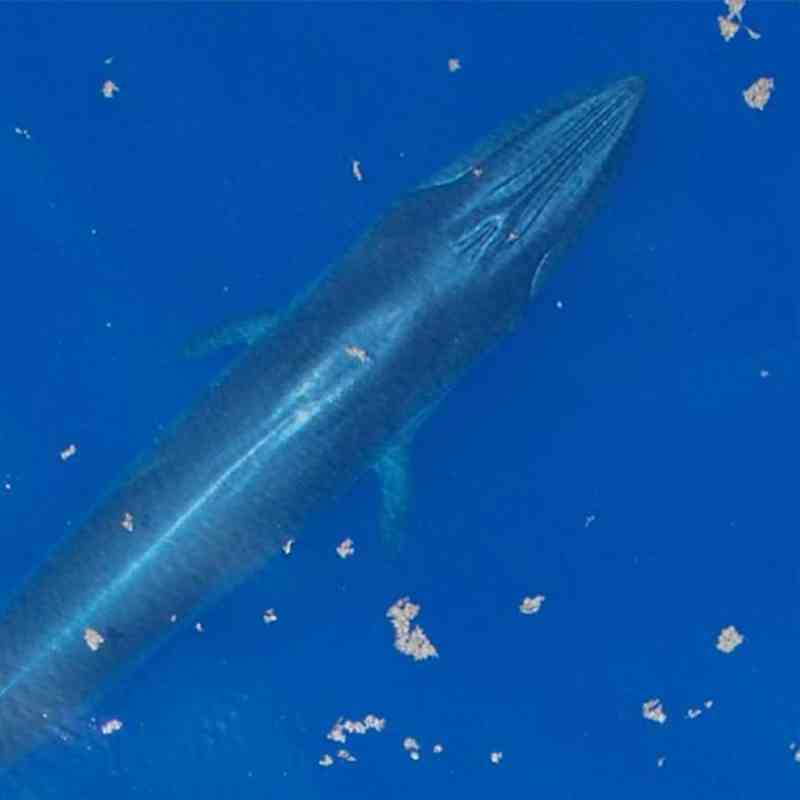The most recent disastrous oil spill in the Gulf of Mexico in mid-November 2023 leaked more than one million gallons of crude oil off the Louisiana coast. This sickening event threatened the survival of Rice’s whales, one of the most endangered whale species on the planet. Unfortunately, this is only one example of the human-caused threats these whales face. Over the last several months, Rice’s whales, and similarly endangered North Atlantic right whales, have faced a wave of significant threats from anti-wildlife members of Congress.
These policymakers have launched multiple attempts to undermine or block conservation measures to protect these two magnificent whale species. These attacks have come in a variety of guises — including individual bills, appropriation bills, amendments to those bills, committee report language and even in a version of the 2024 National Defense Authorization Act — and take different approaches. Regardless of how they’re presented, however, all these efforts share the dubious distinction of making it more likely that these species will go extinct should their anti-wildlife sponsors succeed.
Policies Under Attack
The attacks are generally targeted at one or both of two main policy protection efforts:
-
Proposed expanded vessel speed restrictions to protect the North Atlantic right whale and similar, hypothetical future proposed restrictions in the Gulf of Mexico to protect Rice’s whale.
-
A proposal to designate critical habitat to protect Rice’s whale.
The legislative proposals in question seek to undermine and obstruct conservation measures by blocking funding for developing, finalizing and enforcing proposed rules, or significantly delaying action until various time-consuming conditions have been met. In fact, some attacks even apply to proposals that don’t yet exist and won’t exist for the foreseeable future, such as a vessel speed rule for Rice’s whale.
The proposed vessel speed rule to protect North Atlantic right whales, in particular, has received extensive attention from congressional wildlife opponents. Their legislative attacks would prohibit NOAA Fisheries from finalizing and enforcing its rule until a real-time monitoring system intended to detect nearby whales that can warn mariners has been deployed. One major problem with this seemingly reasonable condition is that the technology for such a system is years away from being ready for widespread deployment.
What’s more, although Defenders and its conservation allies support the development of a monitoring system to supplement vessel speed restrictions and increase mariner safety, such a system will only ever be a supplement — rather than an alternative — to vessel speed restrictions, given the right whale’s extremely low population numbers and the impossibility of acting on real-time data to avoid catastrophic collisions.
Another effort attached to the House version of the National Defense Authorization Act would have forced the Department of Defense to seek an exemption from the Marine Mammal Protection Act for an Air Force base in Florida for the incidental take of Rice’s whales from military training activities. Thankfully, following coordinated advocacy by Defenders and our conservation allies, Congress stripped this language from the final National Defense Authorization Act, but we expect to see a similar attack arise again.
Misinformation and Fearmongering Underlying These Attacks
Unfortunately, many of these attacks are often founded on misinformation and, occasionally, brazen fearmongering. So, let’s clarify a couple of falsehoods:
This myth-busting is not to suggest these conservation measures will have no economic impacts on affected stakeholders. But the vocal claims that efforts to protect these spectacular whales from extinction will be devastating to the multi-billion-dollar oil and gas industry in the Gulf or to recreation and commerce all along the Atlantic seaboard are simply false.
What You Can Do
Help Defenders fight back against these threats! Sign our petition urging Congress to support stronger vessel speed rules to save North Atlantic right whales. You can also contact your senators and representatives directly and let them know they should stand up for protecting two of the most endangered whale species on the planet. Constituent calls and emails to congressional offices, or meetings with their staff in their district offices, are some of the most effective ways of raising the profile of a particular issue for legislators.
Questions? Reach out! You can ask me, Dan Moss, Senior Government Relations Representative, directly at dmoss@defenders.org.
Author

Daniel Moss
Areas of Expertise: Federal legislative process, budget and appropriations, nonlethal approaches to reducing conflicts with wildlife, marine mammal protection, the North Atlantic right whale, protection
comments
Wildlife & Wild Places

